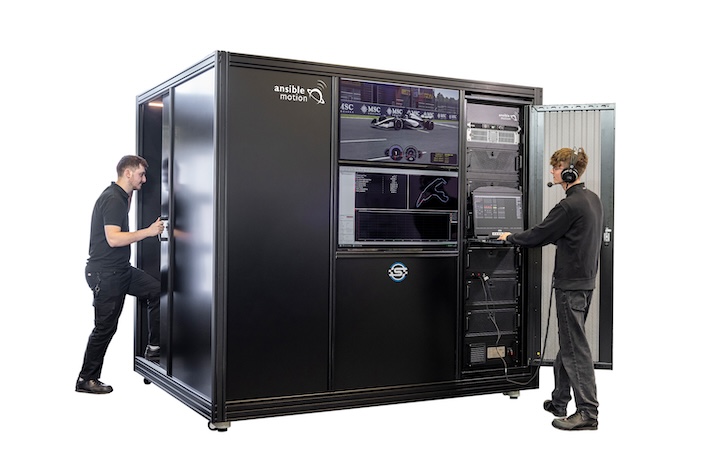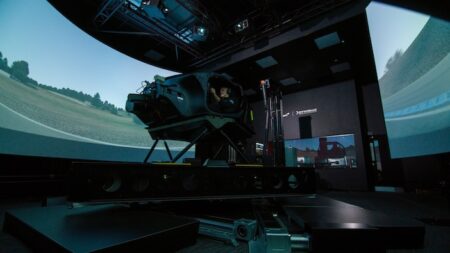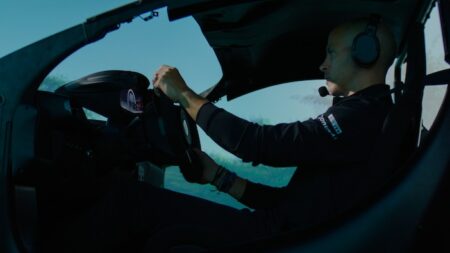Ansible Motion, a developer of driver-in-the-loop (DIL) simulators, has launched its new Theta Cube Sport simulator, specifically developed for motorsports applications.
According to Ansible Motion this simulator offers the same level of realism as a large, permanently installed system, but in a self-contained, transportable and turnkey package. The Theta Cube Sport marks the launch of Ansible Motion’s new Sport DIL simulator product line, which spans its Delta, Sigma and Theta driving simulator series.
Ansible Motion has already delivered the first of these simulators, to an unnamed motorsport customer.
The Theta Cube Sport is a reimagining of Ansible Motion’s Theta Cube DIL simulator, delivering a transportable, 2.5m3 self-contained virtual test-driving system.
Within that environment is a multi-projection vision system, offering a 180-degree horizontal screen wrap, 1.2-metre image height and 2,900 lumens brightness, for visual immersion without content buffering or delay. The image processing power comes from high-performance image generation PCs with NVIDIA RTX 4090 graphics cards, for seamless image warp and blend technology, and engineering-grade graphics tools from rFpro (Ansible Motion’s sister company).
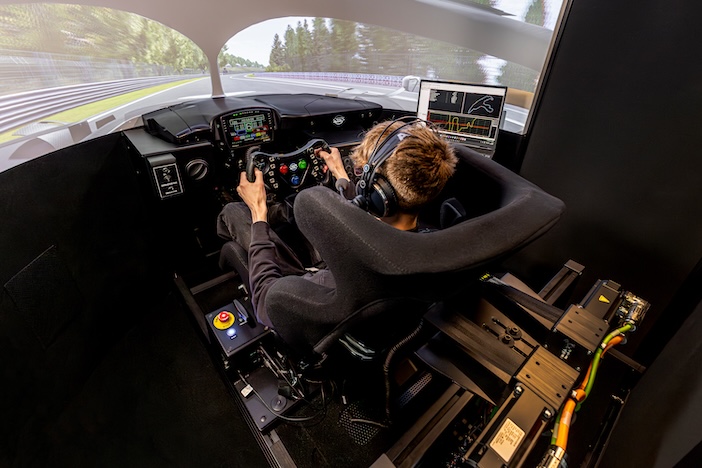
A complete audio system is also integrated, so realistic simulation audio cues and external communications can be provided to the driver. This system includes a modular audio rack and digital mixer, along with an attached stage box and amplifier, which provides for mixing various inputs and outputs such as simulation audio (vehicle powertrain and environmental sound effects for example) and driver-operator communications.
It offers turnkey simulation capability and integration with Ansible Motion’s software, visual, audio and loading systems, plus connectivity with external software-in-the-loop (SIL) and hardware-in-the-loop (HIL) systems.
The simulator integrates feedback and immersion systems, including a reconfigurable race car cockpit and dashboard environment, including an adjustable racing seat, pedals and multi-function steering wheel, which can be made bespoke or delivered from standard option selections.
Alongside haptic and torque feedback for the steering, a full racing harness – with optional seat belt loading system and helmet loading system – delivers longitudinal acceleration cueing and split left/right cueing.
The Theta Cube Sport weighs 800kg in total –300kg less than the standard Theta Cube and requires just four single-phase power connections. The entire system can be operated by the driver from within the simulator, or an operator can give inputs via the integrated mini operator station with spectator screen, supplementary support, and live data monitoring.
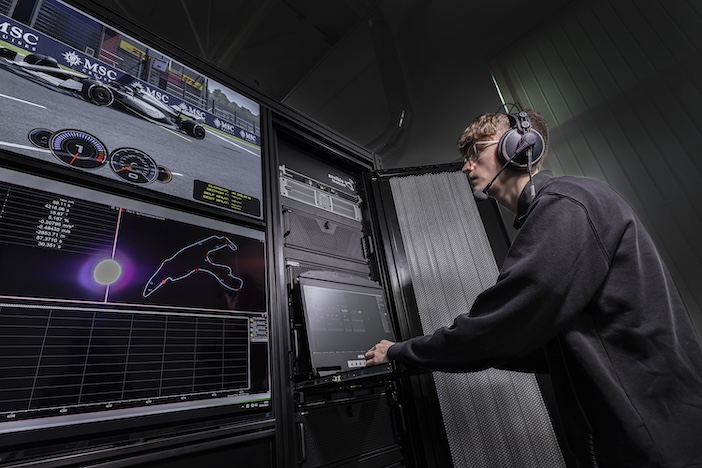
Cross-simulator compatibility
Mechanically, the Theta Cube Sport features a plinth-based driver-surround cassette that is common with Theta Seat Sport, enabling cross-simulator compatibility.
The simulator can be integrated directly with other downstream and parallel Theta DIL simulator option packs and with upstream systems in Sigma and Delta series DIL simulators.
Theta Cube Sport’s steering control and feedback is provided by a Hand Wheel Loading System (HWLS), which delivers latency, torque response, and high torque capability, along with high accuracy and low ripple. A high-frequency actuator array (HFA) provides haptic feedback to the driver through the steering system and other contact points.
The pedal loading system (PLS) can be configured as a 2-pedal or 3-pedal adjustable box system that provides users with force/displacement mapping adjustments, and the required force and displacement sensors.
Dan Clark, Ansible Motion’s managing director, commented: “Theta Cube Sport is a leap forward for compact, transportable motorsport simulators. It delivers a comprehensive, engineering-class DIL experience in a lightweight, fully enclosed form factor that’s quick to install, operate and connect to external simulation environments.”


